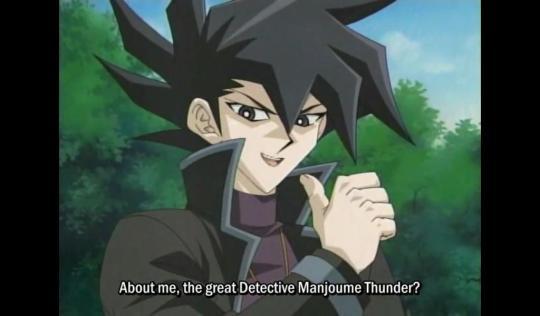#chazz yu gi oh
Note
can you blend chazz princeton from yu-gi-oh! gx ?
Chazz Princeton from Yu-Gi-Oh! GX is being blended!!
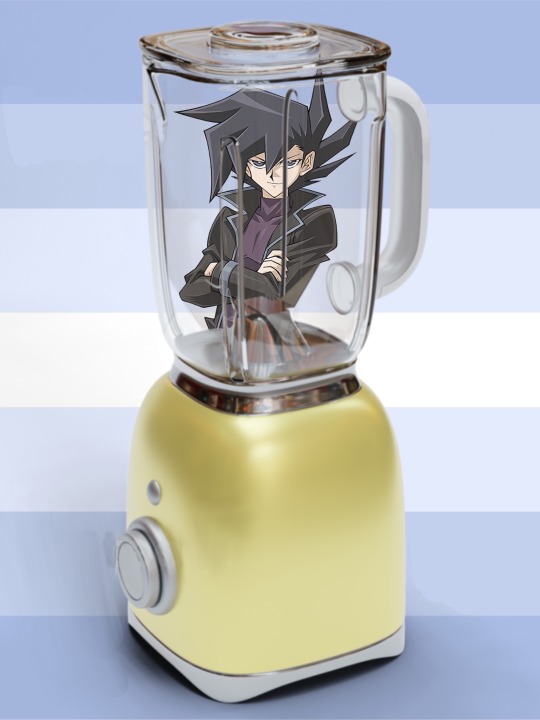
You cannot save him.
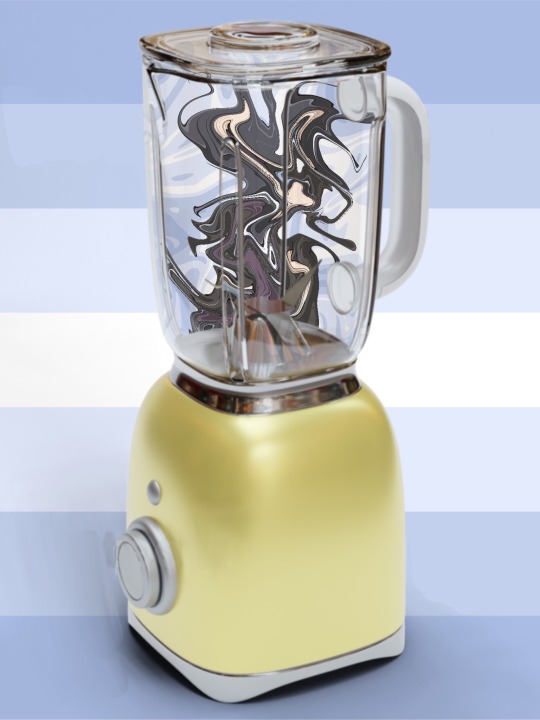
#your fave is being blended#you cannot save them#blend requests#yugioh#yu-gi-oh#yugioh gx#yu-gi-oh gx#yu gi oh!#chazz princeton#chazz yu gi oh
35 notes
·
View notes
Text
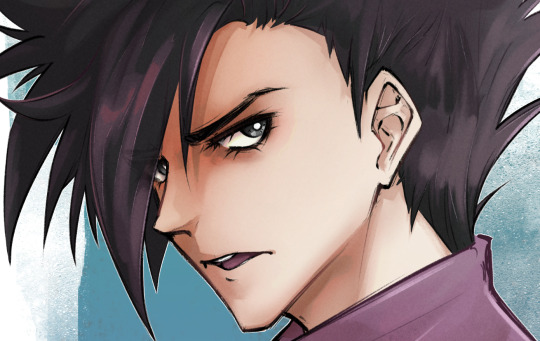

Had a bad art day so ended up doing another Chazz
#Yugioh#gx#jun manjoume#fan art#my art#yugioh fanart#chazz princeton#yugioh chazz#chazz princeton fanart#yugiohgx#Yu-Gi-Oh!
109 notes
·
View notes
Text
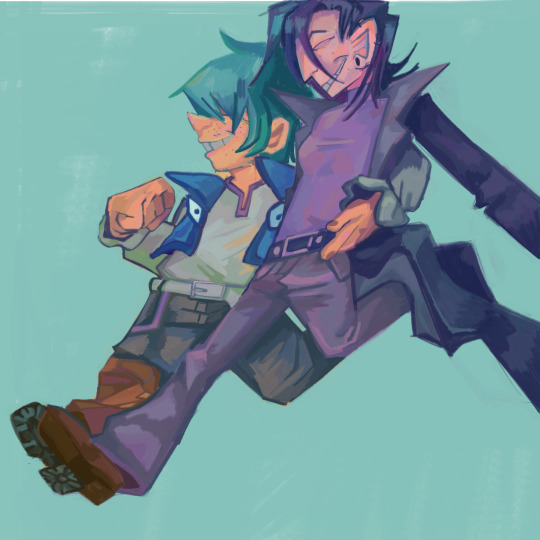
Hey guys
#my art#yugioh#ygo#yu gi oh#yugioh gx#jessie anderson#johan andersen#jun manjoume#chazz princeton#jewelshipping
66 notes
·
View notes
Photo
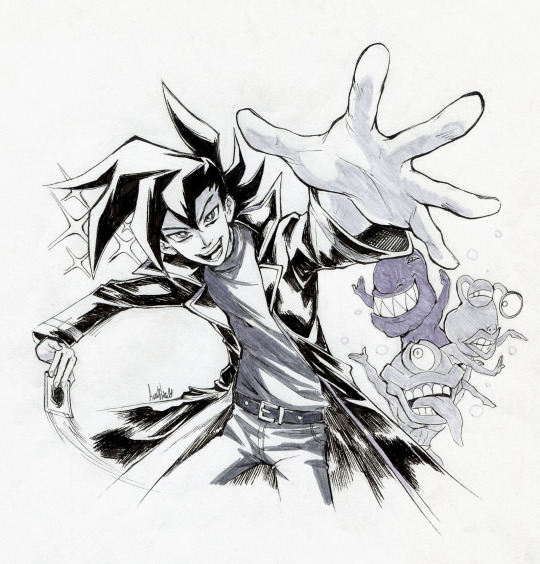
Commission completed for @purracle!!! This was the first Yugioh GX fanart I’ve ever done hehe, thank you so much again for the support!!:D✨
#yugioh#yugioh gx#jun manjoume#chazz princeton#ojama#yu gi oh!#my art#auroblaze art#paypal commission#art commission#auro commission#purracle#precious people
358 notes
·
View notes
Text
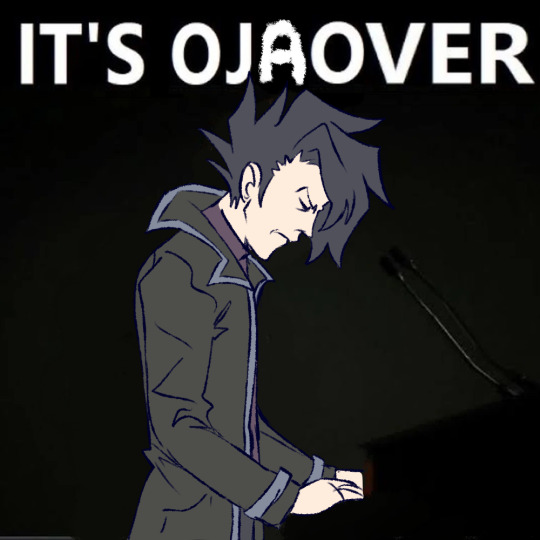
32 notes
·
View notes
Text

Doodle of bored Jun during class
#my art#sketch#doodle#jun manjoume#chazz princeton#yugioh#ygo#yu gi oh#ygo gx#yugioh gx#yugioh fanart
148 notes
·
View notes
Text
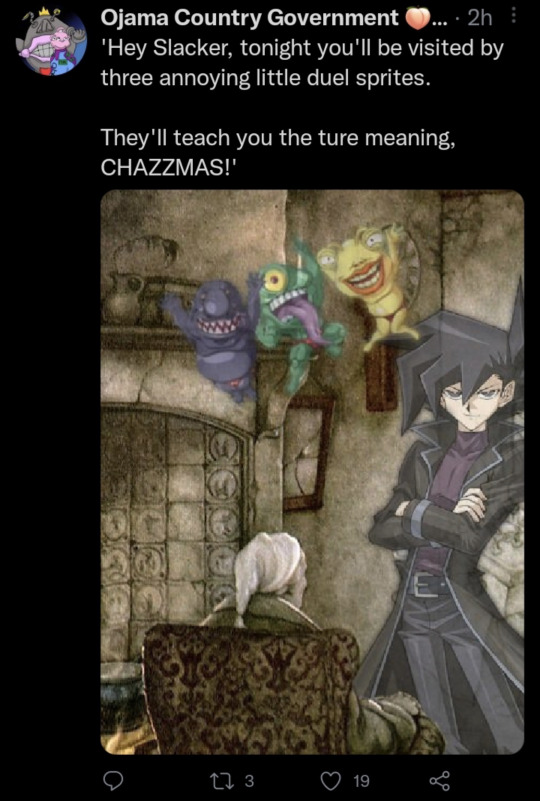
#chazz princeton#chazz it up#jun manjoume#manjoume thunder#yugioh gx#yugioh#christmas#xmas#ygo#yu gi oh
277 notes
·
View notes
Text
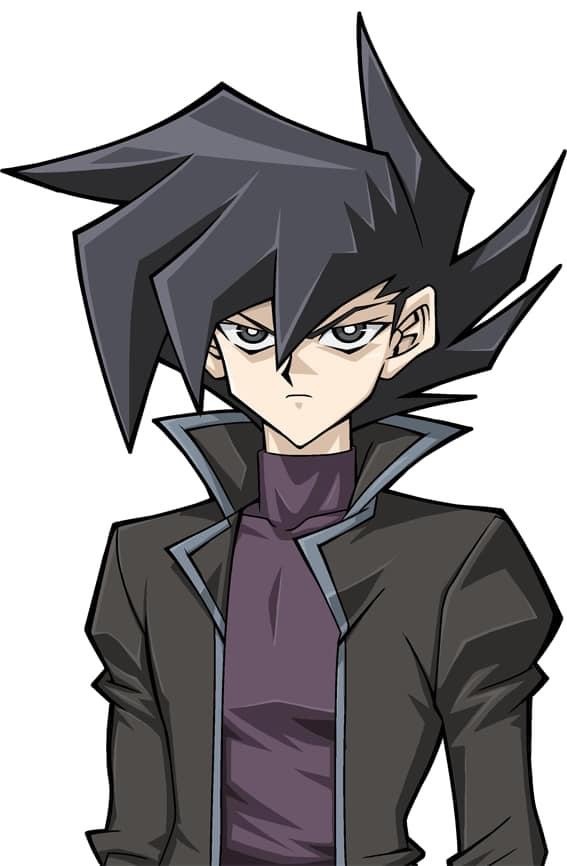
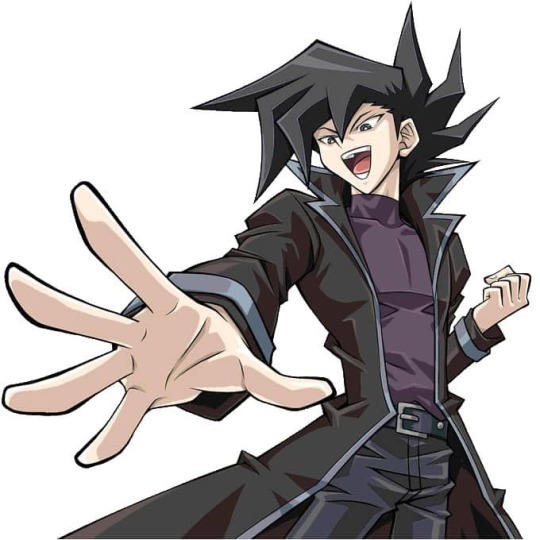
Chazz
43 notes
·
View notes
Text
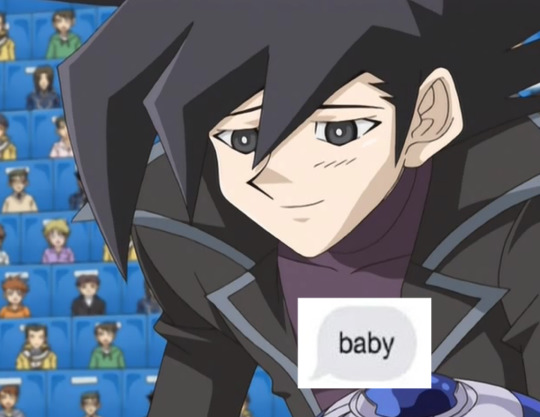

66 notes
·
View notes
Text
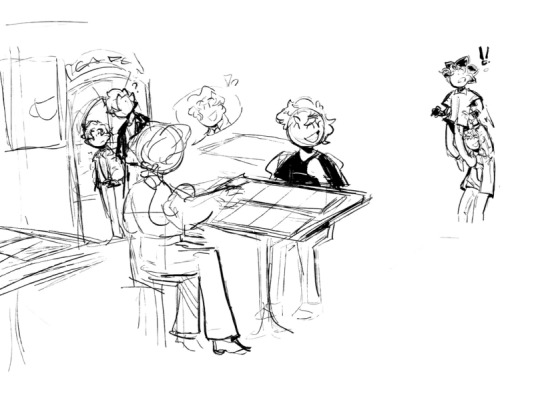

assorted yugiohs
#my art#yugioh#yugioh gx#yu-gi-oh!#yugioh fanart#fan art#yugi muto#judai yuki#jun manjoume#asuka tenjoin#sho marufuji#katsuya jonouchi#jaden yuki#chazz princeton#alexis rhodes#syrus truesdale#joey wheeler
44 notes
·
View notes
Text

Yu-Gi-Oh GX Season 2 - The Fool's Journey
This is an analysis of Yu Gi Oh Gx's season 2's use of Tarot, in regerence to the Fool's Journey, specifically in regards to our proverbial fool and favorite idiot Judai Yuki, and every other Tarot card referenced in this season. Of course, this requires coming through every season 2 episode to look at each individual card Saiou pulled from the deck or referenced so pardon me this is going to be a long one.
What is The Fool's Journey
The Fool’s Journey is a sequence of 22 cards, from 00 the fool and 21 the world. It’s meant to represent the journey of the proverbial fool, a blank slate defined by both naivete and ignorance in their personal growth. In other words the fool leaves on a journey...

...to grow from a child to an adult.
In this journey each card is symbolic for a stage, person or ecounter that the fool makes on his journey of personal growth, and the fool must weather all of them in the journey he can't skip the so-called "disaster" cards like "The Devil" or "The Tower" because part of life is coping with tragedy and loss. So the fool's journey is essentially twenty-two cards that represent different encounters, events, and people in a person's life as they grow up.
Judai is the focal character of Yu Gi Oh GX, and while other characters do matter the central focus of the anime is Judai growing from his "pure" childlike self into a fully grown, well-rounded adult.
The Tarot symbolism is most prominent in season 2, but I'd argue that much like the alchemical symbolism it permeates the whole show especially labeling Judai as the fool. Make no mistake from episode 1 on he's the fool, the very first thing he does in series is run into a magician (Yugi who's signature card is Black Magician) who gives him guidance (the second step of the Fool's Journey. I'm going to quote another post here who states it better than me.
In GX, Judai is, symbolically speaking, The Fool of the Tarot Deck, the Novice Alchemist — a person brimming with infinite potential, yet one who is also supremely ignorant, who walks forward with his eyes closed and often unknowingly causes harm in his great ignorance. In this, he is very much the embodiment of the faults we most commonly associate with teenagers — selfishness, recklessness, shallowness, a lack of dedication or empathy when it’s most needed. Like most people, he has good traits that work to balance out some of the above, but his narrative path through GX ends up being that of the flawed hero undone by his faults — and then that of the atoner, the repentant sinner. In his case, the mistakes of his teenage years are the catalyst for his growth from a boy into a man burdened with duty and purpose.
Judai is a blank slate brimming with potential like the fool, and he's also an ignorant child who doesn't look before he leaps - and there are great consequences for his ignorance. Even in Season 2, a majority of the conflict could have been avoided with the Light if Judai was on the ball, instead of ignoring his friends for weeks after they were brainwashed. Judai is more often than not someone who has to be pushed into being a hero, not someone who voluntarily walks the path and this is something that lets the villains easily manipulate him. Especially in Season 2 where the main villain Saiou's gimmick is convincing the other characters that he's in control of their fate. Someone who doesn't grab the reigns, who doesn't try to control their life will see reality as something that happens to them rather than something they make with every single decision and those people are the kind who easy fall prey to Saiou's manipulations.
It's easy to see life as entirely out of your control if you don't take control. For Judai this manifests in two seasons worth of him resisting growing up and taking responsibility. As the fool he's not wise to the world and because of that, he's often caught guard by what's happening around him and the schemes of villains until it's almost too late.
The need for Judai's growth is especially emphasized in Season 3, where his "pure" nature that he's constantly praised for in the first two seasons becomes heavily criticized as a character flaw. However, the setup is present in Season 2. The first card that Saiou pulls for Judai is the fool, specifically after all of Judai's cards have gone blank and he leaves the academy. The fool is wandering in search of something, because the Fool is missing somethig. You don't leave to go on a journey if you're content and have everything you need at home.
We'll learn in Season 3 just what it is Judai is missing (*cough* Yubel *cough*) but this begs the question if Judai actually needed to reunite with Yubel. After all for the first two seasons Judai seemed to be managing fine without Yubel. In a jungian sense, yes he did because Judai in seasons 1 and 2 had yet to go through the process of individuation. It's the process by which one achieves psychic wholeness, similar to the fool's journey it's necessary for growing up and becoming one's own self.

Judai cannot continue to remain a child, nor can he remain "pure" because pure people don't exist in this world. Judai's pureness comes from a mix of innocence and ignorance, because he's quite literally forgotten some of the darker memories of his past (like Yubel quite literally sending all of his friends into comas until everyone became scared of him) and also from a refusal to "get smarter' or "grow up" on his end. For example does all of the trouble Judai faces in Season 3 come entirely from Yubel, or does Judai also struggle because behaviors that are okay when your first year of high school and still growing become less okay in your third year?
Judai's childish and pure heart that makes him the fool is both his greatest strength and weakness, his strength because he's optimistic, open to new experiences and generally trusting of people which makes him so easy to befriend. However it's a flaw when Judai's childishness turns into childlike selfishess, when his ignorance leads to him making foolish, impulsive decisions. Judai's downright refusal to think, about other people's feelings, about the consequences of his actions leads to great suffering later down the line. After all in the art of the Rider-Waite Tarot card, the Fool is taking the first step of their journey blithefully unaware that they're about to walk right off of a cliff.
So the Fool's Journey is something Judai must complete to grow up and complete his character arc, because the fool may be innocent, and pure of heart, but they're also empty and empty things need to be filled. Each of the cards Saiou pulls this season, are representative of Judai's journey throughout season 2 and some of these are going to be characters, because some of the cards represent people the fool encounters.
Destiny
Before I start breaking down every single tarot card that Saiou pulls, I also want to go into why Destiny is such a huge theme in season 2. There's Saiou's ability to see the future, the multiple tarot cards that are refereced, Saiou's entire deck archetype being based around the major arcana with "Arcana Force" monsters, Edo's obsession with Destiny, the "D-Heroes" or Destiny Hero Archetype that Edo plays which work around the concept of effects that manipulate time (such as sending a card two turns into the future, or flipping over a spell card on your deck to use next turn.)
This season isn't just a typical "there's no such thing as destiny, you can change your fate if you want to" story, because of the way it uses tarot symbolism / Jungian Symbolism. Basically the whole theme of Season 2 (and the leadup to Season 3) boils down to this quote.
“Until you make the unconscious conscious, it will rule your life and you will call it Fate.”
CG JUNG
The biggest example of this is Edo, who is also someone who desperately wants to believe in destiny, and that he's a person chosen for a great destiny at the beginning of the season.
Edo’s obsession with destiny comes from not wanting to confront his past and his inner wounded child. If he believes he’s a chosen hero on a quest for revenge, he doesn’t have to confront what DD pointed out that he’s still the grieving child who lost his father.
Since Edo ignores the unconscious, he is for most of the story a pawn in some way or another. He’s a pawn to Saio believing and following his prophecies, he’s a pawn to DD who killed his father never once suspecting him.
Characters who ignore the unconscious, become pawns of Saiou / the Light. What this basically means is that if you are not aware of a flaw you have, you'll be sabotaged by it in some way. Problems don't usually go away by ignoring them after all as nice as that would be. In Jungian symbolism the shadow is made up of the flaws that you would rather ignore or not confront, and all other parts of the personality that you're not aware of. Confronting the shadow is necessary for individuation which is the same goal as the Fool's Journey. Saiou's strategy is to duel someone, exploit some subconscious flaw, Manjoume's inferiority complex towards Judai, The pressure Asuka feels to conform, Misawa's desire for validation and praise from his peers. Once he's exploited that flaw he brainwashes them with the light, because while being controlled they don't have to think about that flaw. Since they don't want to confront their flaw / shadow and it's easier to just keep o ignoring it then they become pawns to destiny.
Now, for the breakdown of every card that Saiou references this season.
53: Destiny Begins The Freshman Edo Phoenix
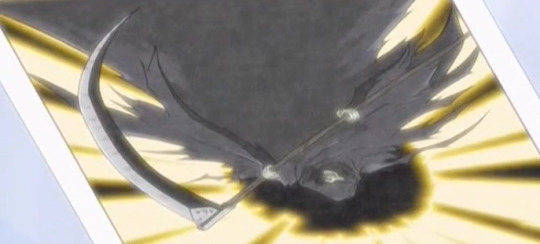
Pull #1: Death in Reverse
XII - Death I am Wary
Death doesn't mean literla death, but rather change. Dath means change. Death means change. Death means change. Means change.
However, Saiou pulls Death from the deck inverted. You have to have death to have rebirth. If it's inverted then it's stagnancy. It's refusing to acknowledge change, or in some cases it's refusing to grieve and because of that you're unable to move on or move forward.
The situation that Saiou pulls this in is during the middle of Edo's duel with Judai. A duel that Saiou set up, and then told Edo to lose, which Edo obeys because up until a certain point he's always done what Saiou's deck told him to do - because of his firm belief in destiny.
Death in reverse in this case is Edo - because his desire to belief in destiny comes from his refusal to grieve or move on from his father's death. If he believes that everything is predetermined and he's a chosen one, then he's not some sad orphaned kid, he's a hero with a great destiny ahead of him.

Edo is the one refusing to acknowledge death, and refusing to grieve, and therefore he's the one who is stagnating at the start of the story.
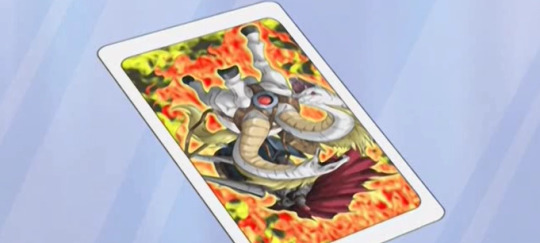
Pull #2: Chariot in Reverse
VII - The Chariot I am Driving
The chariot is the card of ambition, action, energy and most of all control. In the rider waite tarot the image is of a hero riding the chariot. However, in reverse it means a hesitation to grab onto the reigns and take control of your life.
This is once again in reference to Edo, who because of his belief in destiny leaves all the decision making up to Saiou. Edo who would normally be a very strong, ambitious, willfull individual is easily manipulated by Saiou because he refuses to take the reigns into his own hands.
The chariot in reverse can also sometimes mean chaos, as in someone who refuses to take control of his life in an "I do what I want" sort of way. In that case it could be referring to Judai, especially the way Judai's extremely self-centered egotism, only dueling for fun compares to how Edo who is always carrying massive burdens on his shoulders and believes a hero has to carry such things (in spire of the fact that Edo is essentially still a child, just a child playing at being an adult). Saiou says that a encounter with Judai is necessary for Edo's growth and that's true, because Edo just like Judai is still a child, but Judai's aware of that fact whereas Edo thinks he's an adult when he's not. Sometimes the first step to growth is taking a good long look in the mirror.
57: The Kaiser vs. Ed

Pull #1: The Chariot - Upright
I already elaborated on the Chariot's meaning above - but it's upright this time. There's an interesting line where Edo says he was going to win his first duel with Judai until Saiou ordered him to lose. Which implies that it's not destiny at play here, but rather Edo's belief in destiny which influences his choices.
The Chariot could also be a reference to Hell Kaiser Ryo. As the sense of loss and powerlessness in this episode that Kaiser experiences humiliates him enough that he has a full breakdown and becomes obsessed with achieving victory above everything else - much like the triumphant hero holding the reigns of the chariot.
Unlike other characters who fall prey to possession (Fubuki, Asuka, Manjoume, etc...) Ryo repeatedly emphasizes that he's not being possessed by darkness internal or otherwise, his apparent change in behavior is the result of his own decisions. Ryou for all of his flaws is much more of an adult than Edo who's being controlled for more than half of the season because of his belief than destiny, he takes responsibility for his own choices when others like Fubuki try to make excuses for him.

In that sense he embodies the chariot much more than Edo as it's the card of having both hands on the wheel. Though once again the chariot in reverse is the perfect card for Edo, because Saiou's trick is convincing people they're not in control of their destiny which is when he starts making all of your choices for you.
61 - Enter Saiou the Tarot Deck of Destiny
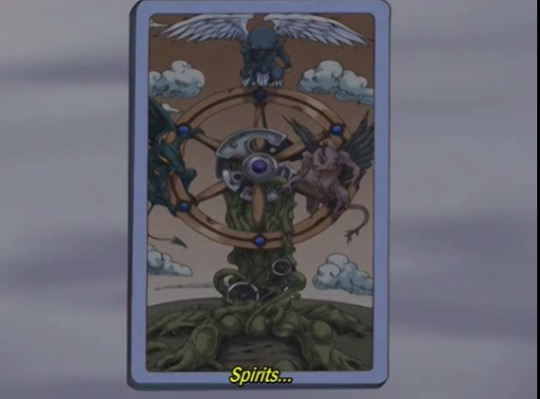
He is a duelist who is able to communicate deeply with Duel Spirits - or so my divinations tell me.
X - Wheel of Fortune: I am changing
Saiou pulls this card after Judai's deck has been bleached, when he's standing on the precipice to leave Duel Academy where he'll later have an encounter with the Neo-Spacians. He doesn't name the card, but it's clearly the Wheel of Fortune, he later pulled the card in association with Edo when he believed Edo was the one who could change his eventual fate.
Here Saiou pulls the card while ruminating on Judai's connection to the spirits. In context he believes the spirits are what's protecting him from the fool as pictured above. I went into great detail for how the fool represents Judai so let's skip that to stop from repeating myself and focus on the Wheel of Fortune.
The wheel of fortune is chaotic chance by the ordained power of gods and the celestial heavens/earth. It's also a card heavily associated with Alchemy.
“The Waite-Smith Wheel of Fortune is fourfold in construction, signaling all that is known in the world of matter: directions, elements, Kabbalistic worlds, fixed signs of the zodiac, etc. Spaced around the wheel’s rim is the divine name, , counterchanged with English letters. Most will instantly pick up the word TARO(T)—sometimes called the “book of fate.” But you might also see ROTA (“wheel”), ORAT (“speaks”), TORA (the law or “Torah”), and ATOR (“Hathor”). Alchemical glyphs adorn the axes of the circle. At the top, mercury’s symbol; at left, the salt symbol; at right, the sulfur symbol. These three are the tria prima of alchemy. The glyph at the bottom, though it resembles the Aquarius glyph, is more likely the alchemical sign for multiplication, a process by which the alchemical product becomes more voluminous. Or the four symbols may be elemental: mercury/air, sulfur/fire, salt/earth, wavy final glyph/water. Atop the Wheel is the enigmatic sphinx. Modern tarot scholars consider the yellow descending serpent to be monstrous Typhon and the red “devil” figure to be jackal-headed psychopomp Hermanubis. The Kerubic beasts from Ezekiel 10 occupy the card’s four corners; their books may be the Gospels: Lion[…]”
Excerpt From Tarot Deciphered T. Susan Chang
The connection to divine aspect in this context is Judai's connection to the spirits. However, pulling the Fool right afterwards is interesting because it's the card of ignorance. Judai doesn't know why he's connected to the spirits because he's forgotten, both his childhood connection to Yubel and the fact he could see spirits long ago. This is a plot point that's foreshadowed three times, first Judai telling a scary story to his dormmates of when he used to hear spirits in his childhood, then in season 2 when he suddenly remembers entering the Kaiba Corp contest for the Neo-Spacians, that's only half the story though as in season 3 Judai begins to question when he first saw spirits until he finally remembers Yubel and sending them away on another satellite.
The last card he pulls is the hanged man which is a card tied directly to Manjoume. Manjoume is Judai's foil in a sense. Saiou even uses Manjuoume as a replacement head of the cult something he originally planned for Judai. Manjoume also primarily wears black, a color associated with Nigredo. Nigredo is the first stage of alchemy the where most of the impurities are boiled out until the alchemical mixture turns pitch black. Manjoume similiarly, is a character who carries around an inferiority complex and constantly battles with his low self-worth and the pressure to succeed unlike Judai who spends the first two seasons repressing all those feelings.
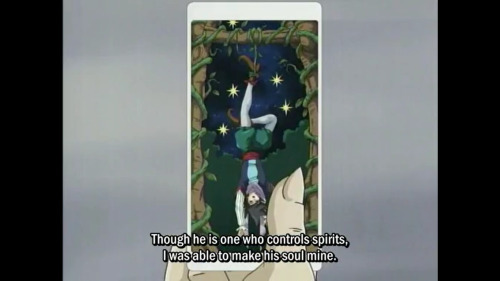

XII - The Hanged Man I am releasing.
Some people argue that Manjoume has no character arc past season 1, but I'd argue being the villain exploiting you with your worst insecurities and flaws is impressive character work because we learn a great deal about Manjoume here.
The hanged man is the card of surrender to outside forces, the card of taking time to contemplate, and also the card of self-proclaimed martyrdom.
There is more than one religion that speaks of a man hanged from a tree. Mithras in roman mythology, Odin from Norse, Jesus in Christianity, and Osiris from Egypt. This card is often interpreted as a representative of martyrdom - the more accurate word other than a martyr is sacrifice.
One of my friends recently shared this with me: "Remember that surrender is an act of will. It is a choice to unclench one's fist and hang oneself upside down and stay there."
Kitchen Table Tarot
The use of the word "Sacrifice" is ironic here, because Manjoume is basically used as a human sacrifice to become a vessel of the Light of Destruction.
Using the Hanged Man as the Self-Made Martyr is meaningful here too, because Kenzan proves that losing a duel to Saiou doesn't automatically result in brainwashing. My theory on what makes others fall prey to the light's influence is when they accept Saiou's words about their inner desires, essentially falling prey to their insecurities. The light is a relief in a way to those riddled by insecurities they don't have to to think about the things that worry them if they're brainwashed. If you think about it, Manjoume is exploited for his inferiority complex, Asuka is forced to conform into a more feminine role, and Misawa joins a cult to get validation from his peers after they start ignoring him.
The Hanged Man is all about the choice to hang oneself, and while Saiou is incredibly forceful including using the surrounding plant life to hang Manjoume the card ultimately implies it was Manjoume's choice ultimately because he kept judging himself on his ability to beat Judai instead of just looking at his own merits.
You have a rival that you wish to surpass. However, deep within your heart you have all but surrendered. That's not all, you even entice him with friendship in order to prolong your battle.
Yes stagnation stemming from a failure to defeat Judai. You cannot continue like this. That said, you happened to pull he who hung in reverse. This foretells progress from stangation.
The choice to stop believing in his own cards and accept the cards that Saiou gave him was ultimately his own in that moment. As evidenced by the fact that Manjoume is able to throw off his own brainwashing later on and take the Ojamas back.
In the duel itself the hanged man arcana force card lands in reverse, and the meaning is exactly as Saiou states it, stagnation, but a stagnation you have to make the decision to pull yourself out of. "That said you happened to pull he who was hung in reverse. This foretells progress from stagnation. Yes - one can choose their destiny."
Of course the irony here is Manjoume's not really making the choice to escape stagnation here, because he's accepting Saiou's will over his own.
62 - A New E-Hero Neos!
This time a card falls out of Saiou's deck, which is something that happens in real life all the time actually when I'm doing readings. Which is a fun little detail the creators threw in. The card itself is death, it falls in a diagonal position ambiguous to whether or not it's upright or reverse which Saiou terms "rebirth if reversed, destruction if upright."
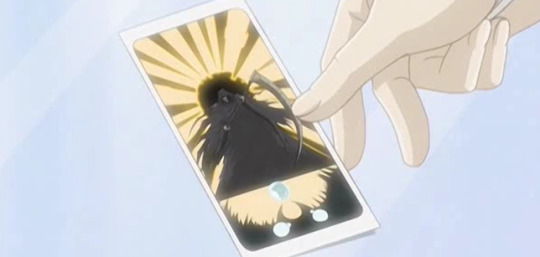
XIII - Death "I am Weary"
Saiou's reading of the card is a little weird. Death in Tarot is the card of Death and Rebirth in the sense of change. Destruction is more in the wheelhouse of the Tower.
Of course his reading could be referring to the necessity of letting things die, in order for change to occur, whether they be old ways, old ideas, etc. Death in reverse isn't rebirth though, but rather stagnancy and the resistance of destruction.
The definition of Death here does fit with the alchemy symbolism surrounding Judai's character. The main philosophy of alchemy is "Dissolve et Coagula" which basically means death and rebirth. A person is dissolved and reformed into a purer metal until eventually alchemical gold is formed. Judai is in fact a character that has been resisting death, because he spends basically two seasons a stagnant character and his immaturity as a result of his lack of growth is a big focus of season 3.
In the Fool's Journey the death tarot card is all about accepting both grief and death as inevitable facts of life.
The Fool now begins to eliminate old habits and tired approaches. He cuts out nonessentials because he appreciates the basics of life. He goes through endings as he puts the outgrown aspects of his life behind him. He process may seem like dying because it is the death (13) of his familiar self to allow for the growth of a new one.
Learntarot.com
Clinging to the familiar self is definitely a way to describe Judai. One of his biggest flaws is his tendency to settle into a comfortable status quo and take things for granted. Hence why he takes so long to try to save his friends from brainwashing in this season.
"It is the ego that sees itself as separate from life; because it is only a mask the ego does not wish to die. It wishes to make itself superior to the universe. If we accept death we will be able to live more fully. The ego never wants to release energy, it wants to hoard it more fully, as a result new energy cannot get in. "
Seventy-Eight Degrees of Wisdom: A book of Tarot
Jung even defines death of the ego as something necessary for growth. In The Archetypes and the Collective Unconscious (1959; 2nd ed., 1968), Jung characterized ego death (which he referred to as “psychic death”) as a fundamental reordering of the psyche with the liberating potential to reset human consciousness so that it might better align with the “natural” self.
Which you know season 3 foreshadowing again, Judai accepts death in himself in quite a literal sense as the end of the season he dies and is reborn as a new being entirely.
I'm probably reading too much into it, but it's pretty clear Yubel was the plan at this point, considering both the season 1 Judai seeing spirits in his childhood, and the launching trading cards into space are both things that get added into Yubel's eventual backstory.
70 - Asuka Vs Manjoume White Thunder

The upright Hierophant! It refers to someone who will be of use. Could this mean that it is Judai Yuki and not Edo Phoenix that I need?
V - The Hierophant I am unlocking
In this scene Saiou directly states the card could be referring to either Edo or Judai. Sorry Asuka no card for you this episode (if I had to assign her a card it would be the high priestess passive, feminine inspiration who appears after the Magician she is basically the first friend Judai makes and one of his first duels when he comes to Duel Academy). The hierophant is also the masculine counterpart to the high priestess so that's more evidence for Asuka being subtly marked as the high priestess.
Saiou first pulled the Hierophant in the past shortly after meeting Edo, to show Edo his belief that Edo can be the one to change the terrible future he's predicted for himself.
The hierophant sits between two pillars wearing three robes - red blue, and white - and a three-tiered crown, both erepresenting the three worlds over which he rules (the ego, the id, and the supergo). In his left hand he holds the Papl Cross. He raises his right hand in a blessing, with one two fingers pointed to the Heavens and two to Earth. This represents the connction between man and the divine. While the crossed keys at the Hierophants feet represent the balance between the conscious and subconscious minds. Overall it's a card for a figure that appears and offers you guidance.
A card that is appropriate for Saiou who's conscious and subconscious minds are completely out of whack. The state of Saiou's possession is left a little bit ambiguous in the text. Saiou claims he's completely controlled by the Light of Desstruction, split into two entirely seperate halfs ala Marik and Dark Marik. His good half does in fact go to Edo and help him in the duel. However, the Light of Destruction claims that he is Saiou, and he's enacting Saiou's vengeance against a world that shunned and feared him for his powers. However, either way the fact that Saiou has divided himself into two distinct halves shows a serious imbalance in his conscious and subconscious he wishes Edo to help him fix.
Before the Hierophant kneels two followers. The hierophant's role is to pass down spiritual wisdom. That's likely the Judai part of the card.
I read something that likened the Hierophant to trickster gods. What's this? Coyote, Hermes, Fox, Loki - they take information that we can't quite wrap our heads around and make it discernible. The Trickster is the messenger between the gods and Man. Stealing fire, teaching us forbiddensecrets, giving us an apple. Joseph Sober called the Hierophant "He who shows the Sacred" in The Book of Oracles, or A Poet's Tarot.
If the Hierophant is linked to trickster gods as well then that's the Fool / Judai's role, also as the character who acts as the messenger between spirits and humans which is Judai's role as Edo can't see spirits. Linking both Judai and Edo to this card also foreshadows Judai's eventual role as someone who becomes a guide to help Duel Spirits and Humans coexist.
Judai is also much like Edo, someone who's conscious and subconscious minds are completely out of whack. All of Season 3 is a balancing act for the 3 parts of Judai's soul, Judai (Ego), Supreme King (Id) and Yubel (Superego). The entire duel between Edo and Saiou is basically setup for what Judai must do at the end of Season 3 when facing Yubel when it's time to find balance in his soul (and Yubel is definitely his soul).
Judai is the guide between spirits and humans, but he's still in the process of learning how to guide others something that takes him about four seasons because Judai is a slow learner.
73 - Kenzan VS Saiou! It's Dinosaur DNA, Don
Saiou starts the episode with a four card spread, card one wheel of fortune, card two the fool, card three the hierophant three cards we've already covered and four is The Strength which refers to Kenzan.
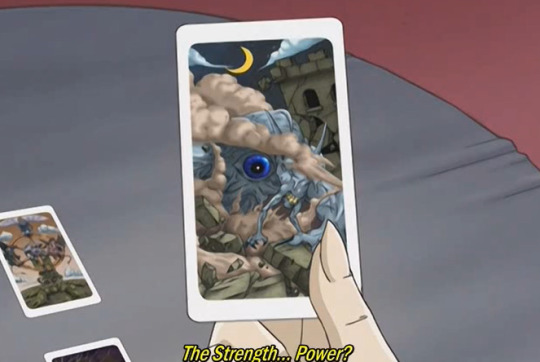
And what is this card that accompanies the Fool? The Strength... Power? A symbol of unwavering Power. Do I take this to mean this one might also affect my fate?
VII - The Strength I am graceful.
That sure is interesting card art for the Strength. For the most part Saiou's cards resemble the Rider Waite decks, a religious leader for the hierophant, a fool for the fool, a figure on a chariot pulled by a two-headed figure (as opposed to two lions), Death shows a figure of Death (in Rider-Waite it's the pale horseman but in other decks it's just the reaper himself) but the Strength Card is traditionally a woman in a white dress taming a lion. The white dress is purity, the infinity symbol atop her head an endless supply of strength, and the act of taming the lion itself is feminine energy controlling the lion a symbol of untamed beastly power. Saiou's card art looks like some sort of alien crawling out of the earth with a crumbling tower and the moon in the background.
It's most likely just a reference to Saiou's alien-like / eldtrich inspired Arcana Force cards, which mixes the major arcana with lovecraftian lore to reference the alien nature of the Light of Destruction as an unknowable force from outerspace tampering with earth. Since the Strength is about taming beastly power, the representative of powr isn't a lion, but rather an alien like the strange Alien force Saiou gets his power from - which makes sense as Kenzan is the first character we're shown able to conquer the light on his own.
As I stated above it's ambiguous whether the light is straight up mind control, or just a corruption. Saiou seems to be possessed as in there is an alien force in his body controlling his body like a puppet, but the Light itself claims some part of Saiou too wants destruction. It's different then the way Yubel possesses people, which is just quite literally using their body as a puppet. Johan isn't even inside of his body when Yubel possesses him he gets shoved into a card, Yubel / Johan isn't a reflection of any of Johan's desires or internal darkness. Yubel themselves are referred to as being corrupted by the light, but they're clearly not possessed their actions are their own no matter how twisted they may be. In that case the Light is more mental damage that comes from enduring painful torture for years on end.
In Duel Links, Yubel has an encounter with Saiou where Saiou detects the light's influence on Yubel and asks them to join in his mission only for Yubel to turn them down.
Saiou: Let us fill the universe with light together.
Yubel: No.
Saiou: What?
Yubel: I don't care about the light. I don't care about you. I only care about Judai.
Which is evidence that the Light doesn't fully possess you so much as corrupt what's already there, Yubel already had an unhealthy fixation on Judai before this and the Light made it so Yubel and Judai were the only two people in the universe that mattered in Yubel's eyes.
The point of this long tangent is that this episode shows once again that people can resist the light. As Kenzan is the first person to successfully do it, he shows that losing a duel =/= possession. Misawa wasn't even going to lose his duel, the pressure to conform and join the cult with everyone else because he wanted to be recognized by his peers just made him lose on purpose.
The Light and season 2 as a whole is a reference to the Albedo or the Whitening phase of alchemy, the second stage where the metal has been cleansed of all impurities. Similiarly, the Light seems to work by promising to cleanse the characters who fall victims to it of their impure thoughts, ie their insecurities because while being brainwashed for the whole season more or less the characters brainwashed are succumbing to flaws that are a part of their arcs for the entire show.
Manjoume is constantly battling against his inferiority complex, which is both a springboard that motivates him to get stronger but also sabotages any self confidence he might build up for himself. Asuka is continually fighting the constant pressure of Duel Academy and sometimes even the people around her like Fubuki, telling her to conform to more a more feminine ideal, the conflict between perceived obligation to fill others expectations vs. doing what you want in life. Even Manjoume and Asuka's duel is Manjoume basically brainwashing her because his subconscious romantic feelings and longing towards her makes him want to brainwash her to being his queen at his sides -> forcing her to conform to femininity when previously she responded to his feelings by telling him she didn't have room for love in her life because her first love was dueling. Misawa presents himself as an island who only cares about dueling and intellectual pursuits, but both Tanya and the Light reveal how much he needs love in his life.
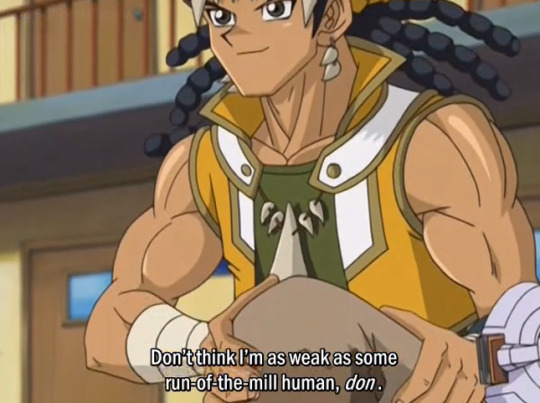
When Kenzan resists the light's brainwashing he claims it's because of his dinosaur DNA, but it's more than likely Kenzan himself - his upbeat nature means he doesn't have the same insecurities that Alexis, Manjoume and Misawa have. In season 3 when he's used as a part of the sacrifice ritual to create super polymerization he even says that he's never felt such strong hatred before. Not to say Kenzan's without flaws, he idolizes Judai way too much, but he's also achieved a peace with himself other characters haven't b/c he's tamed his wild side.
You could also tie Jim Crocodile Cook in Season 3 to the strength, because he's heavy foils with Kenzan, Kenzan uses dinosaurs and Jim uses fossils, they're both tied to earth, they both are good-natured guys who value friendship and loyalty above else. Jim also plays a big role in taming the beast when it comes to the fight against the Supreme King / Haou and Judai's inner darkness. Since the Shadow in a Jungian sense is composed of all the hidden parts of our personality, including the beastial instincts that are suppressed by the ego. Jim and Kenzan by embodying the strength card, display find a balance between the ego and the shadow that other characters lack.
The fact that Jim and Kenzan also both conquer this darkness / light respectively shows that in the end it is the character's choice to succumb. Judai when succumbing to the supreme king is SHADOW POSSESSED which is a Jungian term where unaware of our worst flaws we become essentially possessed by them and unknowingly keep committing the same mistakes.
As stated above until you make the unconscious conscious it will rule your life and you will call it fate. The same mistake every character who falls victim to Saiou makes, believing fate is something that happens to them because he called a few coin flips right in a duel rather than something they create with every single decision they make.
Supreme King Judai snaps and decides that nothing else matters except for power and that if he already lost four friends to it he might as well finish Super Polymerization. He's not being puppeteered or controlled though, Judai is falling prey to his worst instincts but it's still Judai making the decisions here. Which is the same for characters possessed by the Light, ultimately Manjoume, Alexis and Misawa have to throw off the shackles themselves. Which makes these possessions part of an arc and not just the characters being reduced to agenciless puppets for half a season (no that's the zombie thing in the third season.)
They key to doing this is embracing your wild instincts / your shadow and taming them rather than trying to repress them entirely. For Manjoume it's throwing his black coat back on and embracing the fact that he's a messy person full of pride and flaws (which is color symbolism b/c the black coat is Nigredo, but also just funny because he doesn't wash his coat), for Asuka it's embracing the fact that she doesn't fit the ideal of queen of obelisk or the stereotypical unemotional ice queen because she has too many fiery emotions (elemental symbolism and color symbolism). The light tries to rid you of your shadow, but you actually need your shadow to be a whole person b/c all those niggling little flaws are a part of who you are.
97 - He Appears! The Mysterious World Champ

"He's actually searching for his father. I understand how he feels. Every man sees his father as someone to surpass eventually. However, Ed had his father taken from him by a murderer. If he wants to surpass his late father, he will have to defeat that crimminal. That's what he believes. That's why he searches so fervently for an opponent to surpass in his father's place."
There's no tarot card pulled in this episode, but these two episodes take a right turn from Jung Territory right into FreudVille with the insanely oedipal speech the principal gives about Edo's relationship with his father.
Oedipus Rex is a play about many things, chiefly family ties and fate. Oedipus hears a prophecy about killing his father and bedding his mother, so in horror he leaves his home. On the highway to thebes he gets in an argument with a man and kills him on the side of the road. Then in Thebes he solves the Sphinx's riddle and is proclaimed a hero and a king for saving the city. He marries the recetnly widowed queen and has several children with her.
Years later a plague falls upon the city. He summons the prophet Tiresias to tell him who's behind the plague, and Tiresias the blind prophet tells him that he doesn't want to know the truth. Oedipus eventually discovers that he was adopted. That his birth parents heard the same prophecy that he would kill one and bed the other, and decided to leave him on a cliff to die - only for him to be saved. The man Oedipus killed on the side of the road was Laius, the former king and his father, and his wife Jocasta is actually his mother.
Oedipus is revealed to be the culprit of the plague in Thebes all along, because he unknowingly killed his father and bed his mother. Ironically, it's also Oedipus's attempts to defy his fate that lead him to committing the sin he was prophesized to do. Oedipus believes himself to be the hero trying to solve the plague in Thebes only to learn he's the very cause of the plague.
Freud believed Oedipus Rex to be a play that speaks to a fundamental truth of the human subconscious, and named the Oedipus Complex after the play. The Oedipus Complex is a Freudian Term that states a boy develops an unconscious infatuation towards his mother and simultaneously fears his father to be a rival.
Edo doesn't even have a mother so the incestuous interpretation doesn't really apply here. Freud can be interpreted another way though, basically the first relationship we ever experience is with our parents, and the relationship we have with our parents teaches us about all other relationships in life (google attachment styles / theory this is a well studied phenomenon).
The principal takes the heavily Freudian interpretation that Edo can't grow up because due to the fact that his father died early, he never surpassed his father as young boy's due. Edo is still stuck in this stage of immaturity where he views his father as a rival because his father was taken from him too early.
Edo also symbolically kills both his father and his adoptive father in defeating DD and killing the remains of his father's soul that was in Destiny Hero Blood-D! in order to finally grow up. Symbolically he's killing his father like Oedipus, but in actuality what he's doing is choosing to let go of the feelings of the past that controlled him for so long and move on. In order to grow up you have to symbolically kill your parents, or at least in childhood your parents have control of every aspect of your life and seem all knowing and part of growing up is separating from your parents, taking control of your life and making your own decision.
Edo is more closely tied to the fate aspect of Oedipus Rex, in the sense that Edo believes himself to be the hero of the story that is center to the narrative but is blinded to the truth all along. He is even at parts the villain of the story, because for so long he helps Saiou's machinations by willingly choosing to be his puppet because he wants to believe he's a chosen, destined hero so badly.
Much like Oedipus, Edo (oh my god... is that why he's named Edo) spends his entire arc searching for the culprit when the culprit has been right next to him all along. He even gets used as a part of the culprit's plan, because DD encouraged Edo to search for the person who stole Bloo-D in order to spy on the police investigation and make sure Edo didn't get close. Edo, like Oedipus believes himself to be the hero of the story.
But maybe, being chosen by fate isn't a good thing. Oedipus technically is a hero, but he's the hero of a tragedy. He's chosen by fate, but that fate means he's ultimately helpless and agenciless destined to commit a horrible disgusting act he doesn't want to do. All of his attempts to avert his fate and exert his free will just end up with him fulfilling that horrible fate instead.
Edo wants to believe in destiny because of his childish belief in heroes, and his need for heroes to exist because his father's killer went unpunished. He also copes with the reality of his father's death by creating a fictional narrative, he was the hero, his father's death is his tragic backstory, and one day he'll avenge his father and get revenge because that's how stories go. Once again though to be a character in a story is to have no agency, because characters don't have control the authors do. Characters are just tools of the narrative, just like how Edo spends so much of his arc a tool of Saiou, and DD.
When DD is justifying himself and his actions in killing Edo's father he sounds a lot like Edo, proclaiming himself one of the chosen ones.
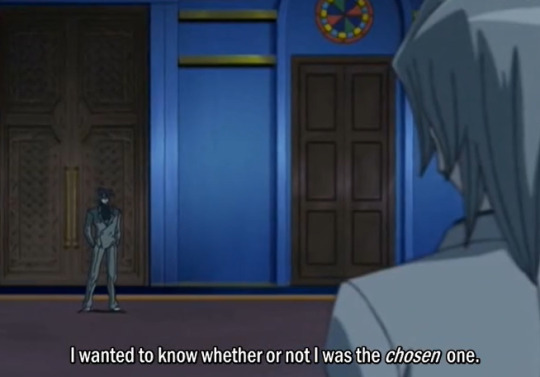
DD:Self-interest? Not quite. I wanted to know whether or not I was the chosen one. Just look at history - all the greats who seized power would always commit some number of crimes. In killing your father, I became a great myself and I proved my status as the chosen one.
Edo: You've lost your mind!
DD: Edo, I wouldn't expect a commoner like you to understand. The path of a great is a unique one, after all - one devoid of laws and common sense.
DD's logic is a reflection of Ed's, and also Saiou's, as all three of them believe themselves to be chosen by a special destiny, and in all 3 cases it's actually a terrible thing to be a chosen one. DD is even split down the middle just like Saiou, and it's implied for all the victories Bloo-D brought him he might just be possessed by that card, an angenciless tool just like Saiou is to the light.
In Season 4 Saiou even succumbs to his flaws and turns against Judai because he can't stand to be powerless, and getting his powers to see the future back is in his eyes worth the possession it might bring too. All three of these characters want to believe in a fixed destiny because it makes them special, but by believing in fate they also give up their ability to make choices and become tools. Until you make the unconscious conscious, it will ruin your life and you will call it fate.
Even Saiou's narrative of gaining revenge for his father turns out to be unsatisfying in the end, after his long quest for revenge all he accomplishes is finding out his adoptive father never once cared for him all along, and he has to kill the last living memory of his real father. The revenge that he thought would bring him closure just rips the wound right back open. His narrative is proven false and Edo is shown not to be a hero as he imagined himself, but just a child who's failed to grow up, or grow past the day his father was killed.
100 - The Ultimate Arcana, The World
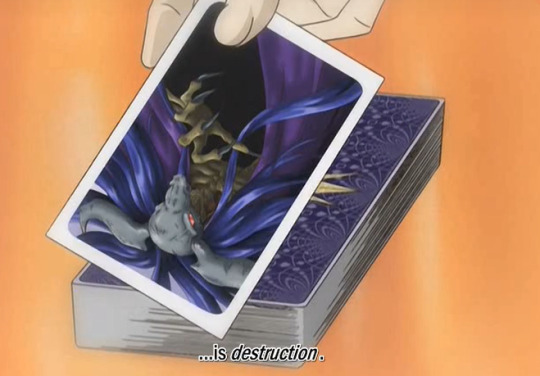
I've foreseen what my future will bring - my fate. THe sign that I've derived is destruction. The upright Devil card. Crime, injustice, temptation, restraint.... It implies them all.
XV - The Devil I am choosing.
Saiou pulls The Devil in a flashback in reference to himself and his future, right after pulling Hierophant in reference to Edo and his role in Saiou's future. We went over the Hierophant above so I'm just going to focus on the Devil.
Saiou's reading of the Devil is pretty much dead on, however, he leaves off a critical part that the man and woman who are chained to the devil in the Rider Waite card have loose chains around their necks that they could take off at any time. The Devil is the card of chaining yourself to your own worst habits.
Do you see how people are chained to this throne? Those are pretty thick chains and look fairly sturdy. Look at their necks, they could slip off at any time but they’re choosing not to. That’s what this is about. Who could create a better hell for us than ourselves? Who knows our weaknesses? Who knows how to make us feel low and dirty and worthless? Who is ready to exploit these
vulnerabilities and hurt us at a moment’s notice?
Yep. Ourselves.
We don’t always chain ourselves without help, peer pressure, poor guidance from parents, but whatever your path is - at some point you have a choice to make. Do I wear this chain or not? Do I drink to excess? Do I hurt someone just because I can?
This card is about chaining yourself to those things that pull you down. Why do we do things to ourselves? When does it become okay to verbally and emotionally abuse ourselves? I think it comes down to two things, fear and doubt. Fear that we’re not as good as everyone else, and the doubt that allows that fear to trickle in.
-Kitchen Table Tarot
It's almost characteristic of Saiou to leave out the part where the Devil is the card of chaining yourself down, because Saiou doesn't believe he has any freedom or choice in choosing his future. He paints himself as the helpless victim of fate, and that makes it easier for the Light of Destruction to control him. As I said before it's left really ambiguous if Saiou is 100% possessed or just corrupted like Yubel, but the Light of Destruction makes the case that on some subconscious level Saiou wants to lash out against the world for excluding him.

Saiou almost exhibits a learned helplessness in regards to his own fate. He doesn't fight back because the light has him totally convinced that he can't fight back. The light also tries to convince Saiou that his destructive impulses are Saiou's own destructive impulses. Unlike Yubel it's less clear - like Yubel is clearly painted as being in control, all of the schemes are Yubel's own designs, Yubel's feelings for Judai are so strong even the Light can't sway them.
Saiou is a mix between being corrupted by teh eldtrich madnezz and just having a powerful dark side ala Dark Marik that takes total control. In favor of the Eldtrich explanation we have the clear lovecraftian inspiration in Saiou, the Light of Destruction, and his deck the Arcana Force. Most particularly the Light is a clear reference to the Color Out of Space.
The color out of space is a short story where a meteorite crashes into a farm owned by Nahum. As a result of the meteor the crops grow large and abundant but are inedible. Thewell water all goes bad. The livestock start to mutate and die off, and their meat is inebile. One of his sons locks himself in the attic and dies, the other vanishes while retrieving water from the contaminated well. The wife then goes to the attic and mutates into a horrible indescribable form.
When Nahum is discovered dying he tells the others that the "color" that arrived on the meteorite is responsible. The color then pours out from the well and makes everything around it go mad, killing the trees, greying organic matter. The "color" itself is an alien entity that corrupts everything around it, much like the Light is described as evil space rays from a White Hole deep into space that corrupts everything it touches. Like the Light makes no sense but it's not supposed to make sense, it's just some weird, unknowable cosmic sense of corruption that twists everything it touches, something with no motivation or sense behind its actions much like alien colors pouring out of a meteorite.
The lovecraftian explanation for Saiou's corruption removes all agency from Saiou, it's not his fault he has just been touched by teh eldtrich lore.
The other explanation is that Devil, that Saiou willingly puts the chain around his neck, that his belief in a fixed future is makes him easy to possess and control. His actions in Season Four support this notion, because Saiou ends up wanting his powers back because of the sense of control that seeing the future was able to give him. The idea that you can control or know the future is a comforting notion to some people, while insecurity and uncertainty over the future is deeply uncomfortable.
There's a quote I love from Choujin X that perfectly describes this very human tendency.
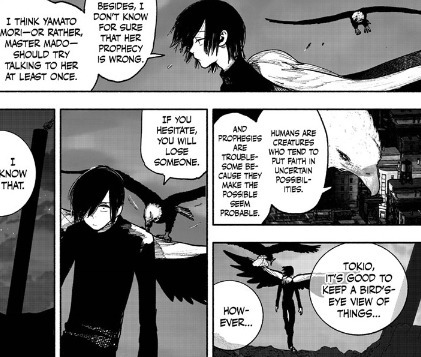
Humans are creatures who tend to put faith in uncertain possibilities, and prophesies are troublesome because they make the possible seem probable.
In other words prophecies provide a false belief of certainty in an otherwise completely random world. Saiou is definitely a victim of this tendency because even his good half so to speak acts completely helpless in the face of the Light instead of fighting back, and it takes Edo's encouragement in order to do so. Edo goes from saying that he wants to hold an umbrella over Saiou's head, to realizing simply standing there in the rain together underneath an umbrella isn't enough, they need to keep walking forward too.
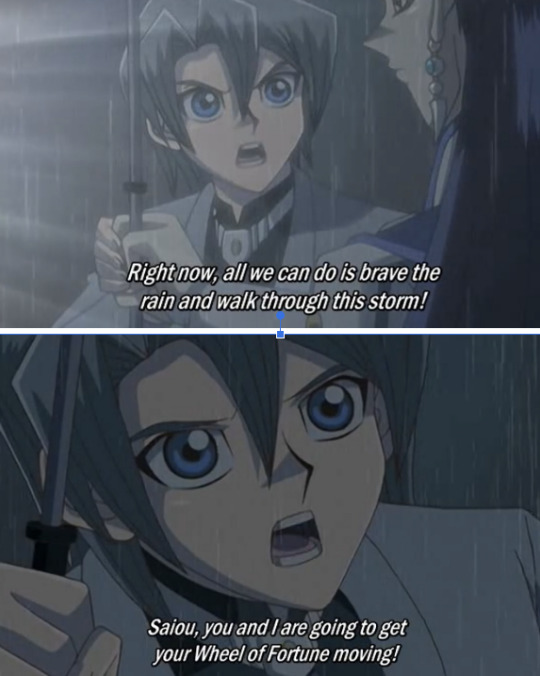
In other words it's Saiou himself who puts on the shackles, and it's Saiou himself with Judai and Edo's help who has to throw them off. When Saiou is liberated from possession he also loses his ability to see the future, the very thing that made him destiny's puppet in the first place.
The World is also referenced by the episode title. It's Saiou's ace Arcana Force card which he uses against Edo, (though his true ace is the Light Ruler which he wins the duel with).
XXI - The World I am Transforming
The world is the last step of the fool's journey. It's the card of self-realization and self-fulfillment. The world is typically depicted a woman standing in the cnter of a wreath, surrounded with four images four astrological signs. The Lion is Leo, the Bull is Taurus, the cherub is Aquarius, and the Eagle is scoprio. These four signs also represent the four elements of aclehym, an fire sign, earth sign, air sign and water sign respectively.
The world represents the final step of the fool's journey, a journey of self-discovery.
"I found this quote about the World and it always strikes me as perfect: "One does not conquer the world, one discovers it."
Kitchen Table Tarot
It also symbolizes the final step of alchemy, which is to create gold, or in a Jungian sense to finish individuation.
What can we say of an understanding, a freedom and rapture beyond words? The unconscious known consciously, the outer-self unified with the forces of life, knowledge that is not knowledge at all but a constant ecstatic dance of being - they are all true and yet not true. The purpose of this card can be described as that of uniting ourslves with all thos things seen in trump 10 as the external vision, that is, fate, the workings of life, the element of existence. When the unity is acheived the symbols vanish, dissolved into a dancing spirit.
Seventy-Eight Degrees of Wisdom: A book of Tarot
The most important aspect of The World in this case is spiritual unity. Yu-Gi-Oh and its various spinoffs is after all, the friendship show about friendship. Though I'd argue that Yu-Gi-Oh surpasses the typical "solve everything with nakama speeches" of the Shonen Genre by showing that showing friendships can be conflict ridden, even trying at times, especially in Season 3 which shows the difficulty of trying to save a friend when they are in a self-destructive spiral. The difference between Yu-Gi-Oh! and other shonen manga is that it's themes of friendship are more solid because these friendships are continually tested and tried.
Friendship in this case also means an alchemical union, alchemy is symbolic of the bonds between people. In order to make a bond stronger it has to be broken and reforged again the same way that alchemy's chemical reactions melt down metals and reforge them as something purer.
The unity aspect of the world shows not only what Edo needs to do to reach Saiou, (The holding out the Umbrella under the rain metaphor) but also it foreshadows the union between Judai and Yubel in season 3. In both cases the solution is a union, and in both cases it's not an easy union because Saiou is in conflict with Edo, and Yubel is in conflict with Judai.

Afterwards Saiou has to reform his sense of self without his powers (something he struggles to do in season 4) and Juadi / Yubel has to reform themselves (once again his entire character arc in Season 4) after all the changes they've endured. The World is a card of transformation and once the transformation is complete there's nothing to do but go out into the world and face it, just like when children are finished growing into adults the final test is for them to leave their parents home and embark on a journey out into the world.
There we go every tarot reference in Yu Gi Oh - oh wait I forgot one. One last Tarot card for the road.
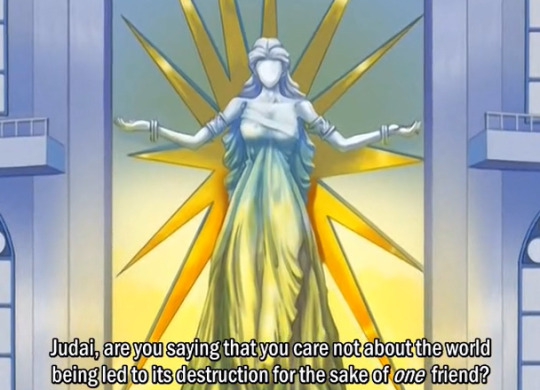
XI - The Justice I am balancing
Judai: I am going to save Ed - and you know that goes for the lives of everyone in the world, too!
Saiou: Oh? Playing superhero are we?
In this conversation Saiou calls out Judai's decision to gamble with the fate of everyone else on earth, by trying to save Edo instead of just throwing the key into the ocean so Saiou can never get access to the satellite. It's a very selfish, and very Judai-like decision.
I'd say that this is again setup for Season 3 which goes more in-depth into Judai's tendency to make decisions like these, only looking at saving the person in front of him instead of the big picture. From a simple utilitarian perspective you should sacrifice Edo to save the rest of the humans on earth, but life is more complex than just the trolley problem.
There are some times when Judai's desire to save one person over the group is a bad thing, such as when his fixation on saving Johan leads to a situation where the rest of his friends get killed because of his self-centered thinking.
There are times when the characters admit they aren't trying to be a hero just save a friend, Jim Crocodile Cook and August O'Brien save Judai not because it's the heroic thing to do but because they want to help their friend - it's something they admit is selfish on their part. A lot of Season 3 is showing that heroes aren't just slaves to justice and right and wrong and they can often make selfish decisions, but also putting one person over the many isn't necessarily a bad thing.
The utilitarian thing to do would be to kill Saiou, to kill supreme king Judai and then later kill Yubel for the sake of the world, but is that really going to be the solution in the friendship anime about friendship? Especially in an anime that borrows so heavily from Jungian themes, in Jung the solution is not to kill your shadow but unite with it.
Invoking the Justice in this Situation basically symbolizes this conflict between saving your friends and saving the world. As I said Yu Gi Oh Gx doesn't really give a definite answer on the "Needs of the Few vs. the Needs of the Many" debate it just portrays it as something complciated.
I always thought that the Justice card was male, but then I did some research and found that it's based on Athena. If you look at the card, there is no water. This is a bit unusual for tarot cards, particularly in the major arcana. No water? No emotion. This card is about being critical and impartial. There is no room for empathy.
Everything in this card is even. The roes are symmetrical, the pillars are parallel, and the sword held straight up balance the scales hanging straight down. She (justice) will start moving as soon as she makes her decision and will carry it out. Justice is about action.
Also don't forget that she's holding a sword. The swords suit is about intellect. If you can imagine that Justice is holding the Ace of Swords, you can get an idea of the pragmatism that lives in this card. When this comes up in a reading you have to take all of your emotions out of the decisions you need to make.
Justice is primarily about two things, it's about removing emotion from the equation, and also about balance. Once again I think this is foreshadowing a later conflict, because for the first two seasons Judai makes all of his decisions with his emotions and that works out for him for the most part, until it doesn't.
Judai deciding to surrender the key to save Edo is a purely emotional decision on his part, he's not really weighing the life of Edo against the world he just wants to save Edo.
Judai's decision making is pretty biased but it's not entirely wrong either, like what's the point of calling yourself a hero if you don't even try to make an effort to save somebody in trouble right in front of you.
He's also following the concept of alchemy, as above, so below. That which is above is like to that which is below, and that which is below is like that which is above.
In other words decisions in the microcosmos (the world of humans) affect decisions in the macrocosmos (the heavens). This alchemical premise that the decisions you make in your everyday life ripples out to affect the world, because everything is connected, is woven into the show itself. Neos literally tells Judai that his duel against Saiou on earth, will also ripple out and effect the cosmos.
Judai's reasoning isn't entirely selfish, why can't he try to take a third option and save both Edo and the World?
Which is I think why we're invoking the justice here, Judai does in fact need to learn to remove his emotions and think pragmatically, he spends basically all of season 3 and 4 doing just that - but too much cold reason is just tipping the scales in the other direction. There's no such thing as a completely objective person, in the end Judai is a human being making a decision.
Jim, and later August's decision to save Judai when he becomes the Supreme King is a selfish one because they're putting Judai above the world, but they're also teenagers, and they admit that they're not being heroes of justice they're just kids who want to save their friend.
So the Justice here indicates the very balanced take on justice and heroism that the show gives us. People can't completely embody justice because they are biased unlike lady justice herself, however you can't compeletely decide things based on your emotions either because that will blind you to the consequences of your actions. Judai's selfish desire to save Johan and play hero in Season 3 hurts his friends because he only thinks of his own feelings, not the bigger picture or the feelings of his friends.
Honestly this whole concept of love vs. justice that GX is trying to balance reminds me of an anecdote I heard in church from my childhood where the priest was ruminating on god and faith and he basically said, that you can't have justice without love, because without love to guide it Justice becomes cold and unfeeling and basically becomes just about punishment.
That seems to me what GX is trying to tell us with Saiou, and then later Supreme King Haou, and Yubel's arcs. That yes all three of them did bad things, things that hurt other people. Justice demands that they be stopped, and that they face some sort of consequences for their actions. However, justice without any sort of love is just punishment.
Maybe Saiou, Judai and Yubel deserve punishment for their actions, they hurt a lot of people, but they themselves were hurt too. Killing them for the greater good is certainly an option, and maybe that is justice but there's no love in the action.
You could say that Yubel deserves to die for the sins they committed, but every soul lost that could have been saved is still a life lost.
Judai could have killed Saiou for the sake of the world, but because he saved Saiou, Edo spends the next two seasons selflessly helping Judai in thanks for Judai deciding to help his friend.
Jim and O'Brien could have killed Supreme King Judai for the greater good, but the decision to save Judai later saves Yubel as well because if Judai had died do you think anyone would have been left to stop Yubel?
Saving Yubel is also a part of Judai's own atonement arc because from Season 4 on, both him and Yubel are able to work together to help bring balance between humans and duel spirits.
Therefore the solution comes in finding the balance between love and justice.
In the friendship anime about friendship, helping your friends is a good thing and abandoning your friends is a bad thing.
In other words, I could have summarized this entire overly long post in one sentence. I wrote way too many words about the Card Games Anime TM but congratulations to all of you who read until the end - here's a cookie!
#Yu-Gi-Oh Gx#yu gi oh gx#yugioh#yugioh gx#judai yuki#saiou takuma#edo phoenix#ed phoenix#yu gi oh gx meta#Yu-Gi-Oh Gx meta#gx meta#jaden yuki#yubel#jun manjoume#asuka tenjoin#chazz princeton#alexis rhodes#the fool's journey#tarot#ygo#ygo gx#ygx meta#ygo meta
17 notes
·
View notes
Text
The GX Reunion
Jaden: Syrus! How'd it going?
Syrus: Oh, it's been great, Jaden! It's so great to see you again! How has it been?
Jaden: Oh, you know, I've been enjoying my break from the pro dueling circuit. Gonna hop right back on it in the American League.
Syrus: Wow, really? Why?
Jaden: Well, so I can see Jesse again. It's been way too long since I've seen him in person! This reunion meet up will be the first time we see each other face to-
Syrus: Whoa, whoa, whoa, wait wait wait.
Jaden: What?
Syrus: ...He?
Jaden: ...Yeah?
Syrus: ...Jaden, Jesse's a girl...well, a woman now.
Jaden: ...
Syrus: ...
Jaden: Ha! That's a good one, Syrus! You almost got me with that one!
Syrus: ...Oh my God.
Chazz: Still an slacker...
Jaden: Oh, you got....you got Chazz in on the joke too, huh?
Chazz: It's not a joke, you stooge.
Jaden: Uh, A-Alexis! Tell them!
Alexis: Jaden...I told you Jesse was sleeping in my dorm.
Jaden: i mean, you stayed in my dorm. It's not that weird.
Alexis: In the woman's only dorm...?
Jaden: ...Bastion!
Bastion: Jaden, do you really need me to spell this out for you?
Jaden: Okay, guys, I get it. I'm not the brightest. Never have been. Not book or street smart. But there is no way in heaven or hell I would be so dumb as to not notice the difference between-
Jesse: Howdy, guys!
Everyone looks and sees Jesse walk towards the group in a sundress, with a very womanly build. Then, everyone looks at Jaden.
Jaden: ...Well, this answers one question, but raises so many others...
Jaden: Yubel, why didn't you say anything?!
Yubel: ...I mean, I thought it was obvious.
Jaden: Neos, don't tell me you knew!
Elemental Hero Neos: *rubs the back of his neck as he looks away awkwardly*
Jaden: Winged Kuriboh, don't tell me...
Winged Kuriboh: *shrugs wings, sweats nervously*
#yu gi oh#yu gi oh gx#jaden yuki#syrus truesdale#bastion misawa#alexis rhodes#chazz princeton#yu gi oh shitpost#jesse anderson
19 notes
·
View notes
Text
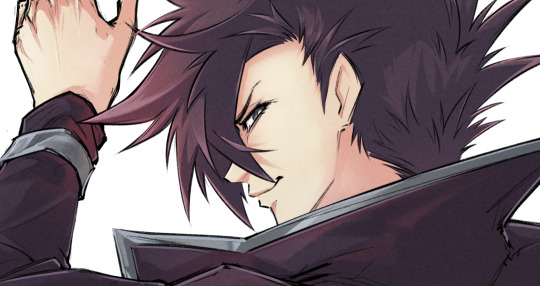

I suddenly got a huge Chazz Princeton revival so now Im watching GX all day like one summer 12 years ago.
#Yugioh#jun manjoume#fan art#my art#yugioh fanart#chazz princeton#yugioh chazz#chazz princeton fanart#yugiohgx#Yu-Gi-Oh!
103 notes
·
View notes
Text
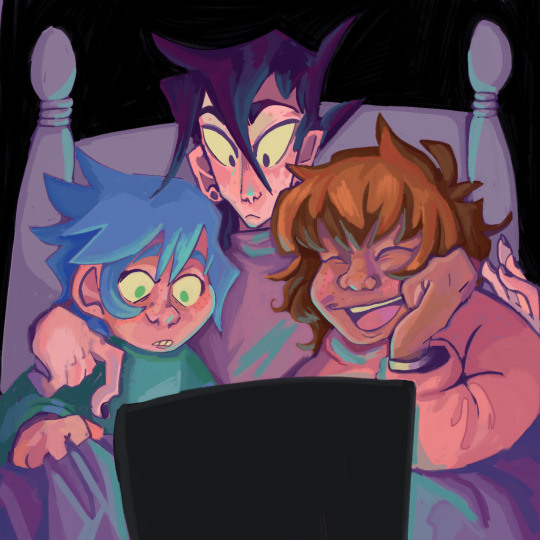
Hello everybody
#ygo#yugioh#yu gi oh#my art#yugioh gx#jun manjoume#chazz princeton#johan andersen#jessie anderson#judai yuki#jaden yuki
47 notes
·
View notes
Photo
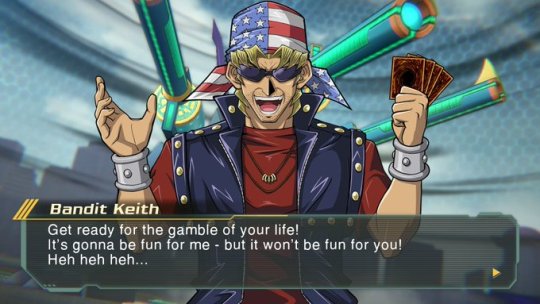


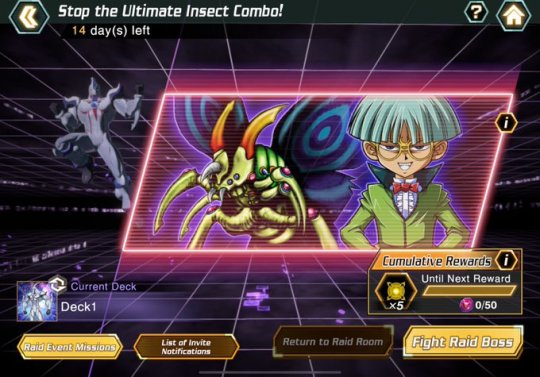
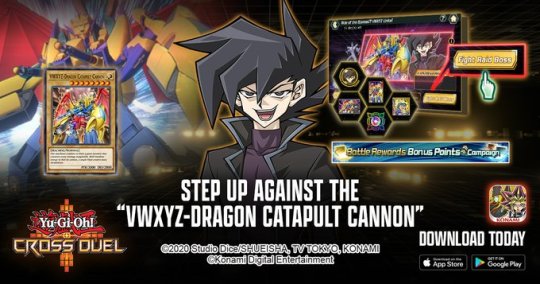

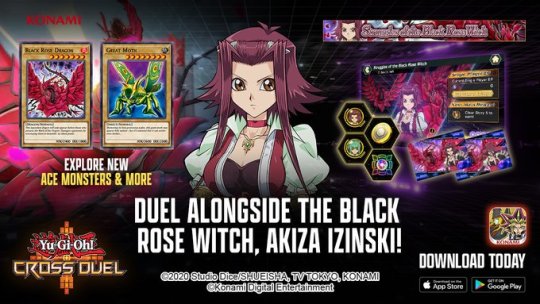
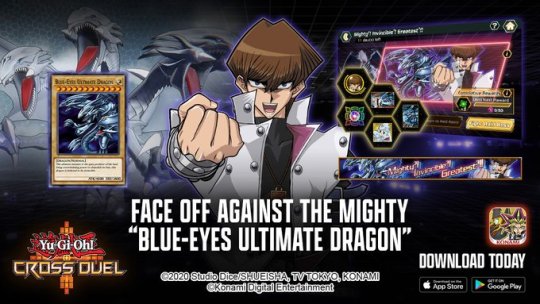
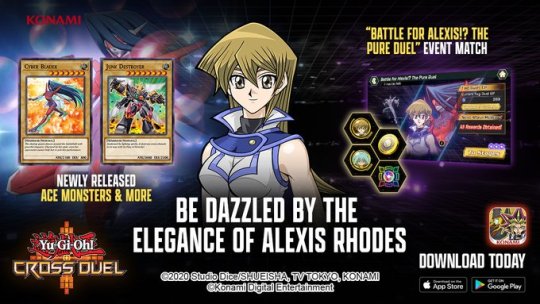
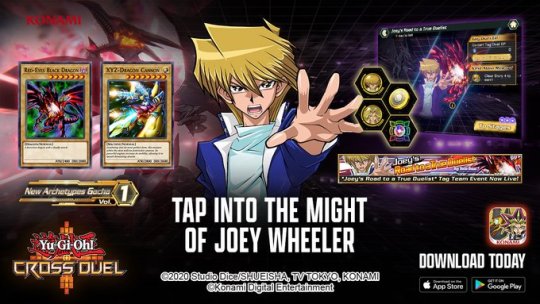
Here’s highlights from Cross Duel’s history, including raid battles and player avatars.
#yu gi oh#cross duel#yu gi oh gx#yu gi oh 5ds#yu gi oh arc v#bandit keith#seto kaiba#joey wheeler#weevil underwood#alexis rhodes#chazz princeton#akiza izinski#kalin kessler#sylvio sawatari#background characters
87 notes
·
View notes
